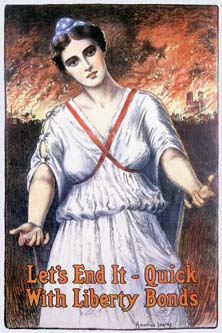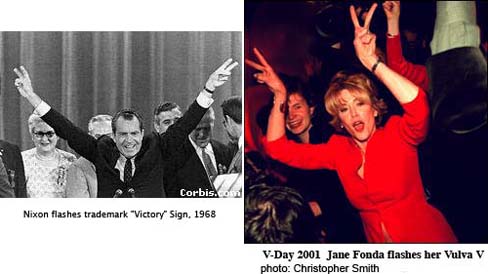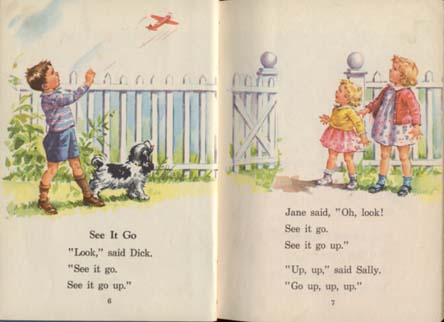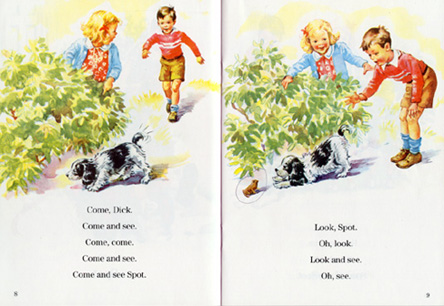Dialogue with a Vagina Monologue (Chapter I)
 Over the past year, the members of the LMDA List Serv have compiled on average almost one play list per week. Although most lists are never actually listed on the official Play Lists reference page, the dramaturgs and other theatre people on the list obviously relish this particular task. There have been some seemingly obscure lists such as “Plays about Rural Gay/Lesbian/Transgendered People” and highly opinionative lists “Most important (best?) contemporary American and British plays since 1990 (hey! what about Canadian plays?)” but I have never seen the ‘turgs stumped or shy away from their playlist compiling duties until recently. Last week, someone asked for suggestions for male companion pieces for a V-Day performance. No one responded.
Over the past year, the members of the LMDA List Serv have compiled on average almost one play list per week. Although most lists are never actually listed on the official Play Lists reference page, the dramaturgs and other theatre people on the list obviously relish this particular task. There have been some seemingly obscure lists such as “Plays about Rural Gay/Lesbian/Transgendered People” and highly opinionative lists “Most important (best?) contemporary American and British plays since 1990 (hey! what about Canadian plays?)” but I have never seen the ‘turgs stumped or shy away from their playlist compiling duties until recently. Last week, someone asked for suggestions for male companion pieces for a V-Day performance. No one responded.
So I began speculating if any of the blogosphere boys have written or know of any “lovely, warm and fuzzy solo pieces performed by boys that are terribly supportive of women in general and their genitals in particular” or monologues to excerpt from full-length plays “about boys loving and respecting the ladyparts” that would pass muster of the V-Day-Trippers.
 My guess is this might be what is known in marketing parlance as a vacant niche, an area that is wide open to exploitation to the adventuresome boy playwright willing to adapt. (read The Eunuch with the Biting Tongue) But of course, as companion piece to the Vagina Monologues, one would need to be extremely wary of the many pitfalls. (Smiley face. I tease the Vulva Choir here with politically incorrect double-entendres.)
My guess is this might be what is known in marketing parlance as a vacant niche, an area that is wide open to exploitation to the adventuresome boy playwright willing to adapt. (read The Eunuch with the Biting Tongue) But of course, as companion piece to the Vagina Monologues, one would need to be extremely wary of the many pitfalls. (Smiley face. I tease the Vulva Choir here with politically incorrect double-entendres.)
V-Day is a global movement to stop violence against women and girls. Obviously related in name to VE Day and VJ Day which celebrated the Allies victory in the last “good war,” according to the website, the ‘V’ in V-Day stands for Victory, Valentine and Vagina. I’d like to have been the fly on the wall at the meeting where that odd trinity of words was decided upon.
Even though the V-sign (and its phrase “V for Victory”) is cliche now, it has a relatively short history, originating around 1940 as a Belgian piece of grafitti in defiance of the German occupation. Somewhat ironically, the V-sign was used as a propagandistic image by both Germany and the Allied forces during WWII. But for the Allies, the V-sign became immortalized as Britain’s wartime leader Winston Churchill was repeatedly filmed using the sign as a victory salute paralleling the V for victoire in French and V for vrijheid in Dutch that was being painted on walls in the dark as a symbol of freedom from occupying forces. The V was also used in its Morse code sound, the dot-dot-dot-dash (di-di-di-dah). Fortuitously, this sounded much like the opening bars of Beethoven’s Symphony No.5. These bars as well as the Morse code signal were broadcast by the BBC constantly during the war and indelibly underlined what Beethoven himself had said about the initial motif of his symphony: “Thus Fate knocks at the door!” So both in sign and sound, the V became a most amazing piece of propaganda, countering most effectively the Sieg Heil (literally meaning “Hail [to] Victory” in German) right-arm victory salute of the enemy.
Somewhat ironically, the V-sign was used as a propagandistic image by both Germany and the Allied forces during WWII. But for the Allies, the V-sign became immortalized as Britain’s wartime leader Winston Churchill was repeatedly filmed using the sign as a victory salute paralleling the V for victoire in French and V for vrijheid in Dutch that was being painted on walls in the dark as a symbol of freedom from occupying forces. The V was also used in its Morse code sound, the dot-dot-dot-dash (di-di-di-dah). Fortuitously, this sounded much like the opening bars of Beethoven’s Symphony No.5. These bars as well as the Morse code signal were broadcast by the BBC constantly during the war and indelibly underlined what Beethoven himself had said about the initial motif of his symphony: “Thus Fate knocks at the door!” So both in sign and sound, the V became a most amazing piece of propaganda, countering most effectively the Sieg Heil (literally meaning “Hail [to] Victory” in German) right-arm victory salute of the enemy.
From this origin of the Victory sign in war, V has accumulated additional connotations of “Defiance”and “Peace,” especially in American culture. The two-finger salute of V was totally appropriated by the anti-war protesters in the ’60’s as a peace gesture, even as the traditional established V salute of victory became one of President Richard Nixon’s best-known trademarks. He used it most famously at his departure from public office following his resignation in 1974 — a year by which most hippies had also resigned from the scene. With war now ended, the counterculture had reconciled its most volatile and political difference with the mainstream.

Less appropriator and more inheritor, V-Day, with its Vagina muscling its way into this ambiguous V-sign territory of war/peace, feels completely apt, suggesting that the electorate of the most powerful military nation in the world could also be poised and psychologically prepared to elect its first female Commander in Chief. (“I’m in. And I’m in to win.” says Hilary.)
But V-Day’s attempt to usurp Valentine’s Day away from “the couple” and claim ownership of the holy-day hits the wrong chord, because even though Jane is mad at Dick, she doesn’t really want a divorce. Dick may often be assigned to the doghouse with Spot but he eventually will always be beckoned back into the house to play. In fact, the above request for boys to perform at V-Day ceromonies, suggests that the Vula Choir, now almost a decade into their campaign, has perhaps tired of singing and signing to themselves, and are truly missing their old playmate Dick.
…to be continued.
Chapter II: “Out, damn’d Spot! out, I say!”



2 thoughts on “Dialogue with a Vagina Monologue (Chapter I)”
Tboy,
Thanks for the attention and the double-edged critique of my posts. I was somewhat apprehensive about the posse you sent after me. I see you got the Lucky Spinster and sas to saddle their horses, but so far they seem a bit reluctant to read, as opposed to skim, what I wrote. And both you and your posse still haven’t really ventured out of the corral at the theaterboy® domain, although I do appreciate Tboy’s closer read and attempt at dialogue. As you point out, boys especially need to walk gingerly around the subject.
I want to post more on V-Day, so I won’t answer much here in the comment section or at your blog, but I will say this:
“I think he crosses a line, at least eventually. For a while the history of V-day stuff is amusing, but frolicking in the overlapping territories of castration and female genital mutilation strikes me as overdoing it.â€
I gave that section its own special Swiftian title, “A Modest Proposal to Boy Playwrights†to underscore the satire. Of course I am not advocating genital mutilation. The modest proposal contrasts the two contexts, one historical, one cultural.
Today we find the castration of boys to sing in opera barbaric and perverse. However, only a few centuries ago, even the Pope thought differently.
Germaine Greer’s Sex and Destiny: The Politics of Human Fertility expanded her critique of Western attitudes toward sexuality, fertility, family, and the imposition of those attitudes on the rest of the world. Her target again was the nuclear family, government intervention in sexual behavior, and the commercialization of sexuality and women’s bodies. Greer argued that the world is over-populated only by Western standards of comfortable living. Advocating poverty over consumerism, she frequently endorsed practices at odds with the beliefs of most Western feminists. She wrote that female genital mutilation had to be considered in context and might be compared to breast augmentation in the West.
Comments are closed.